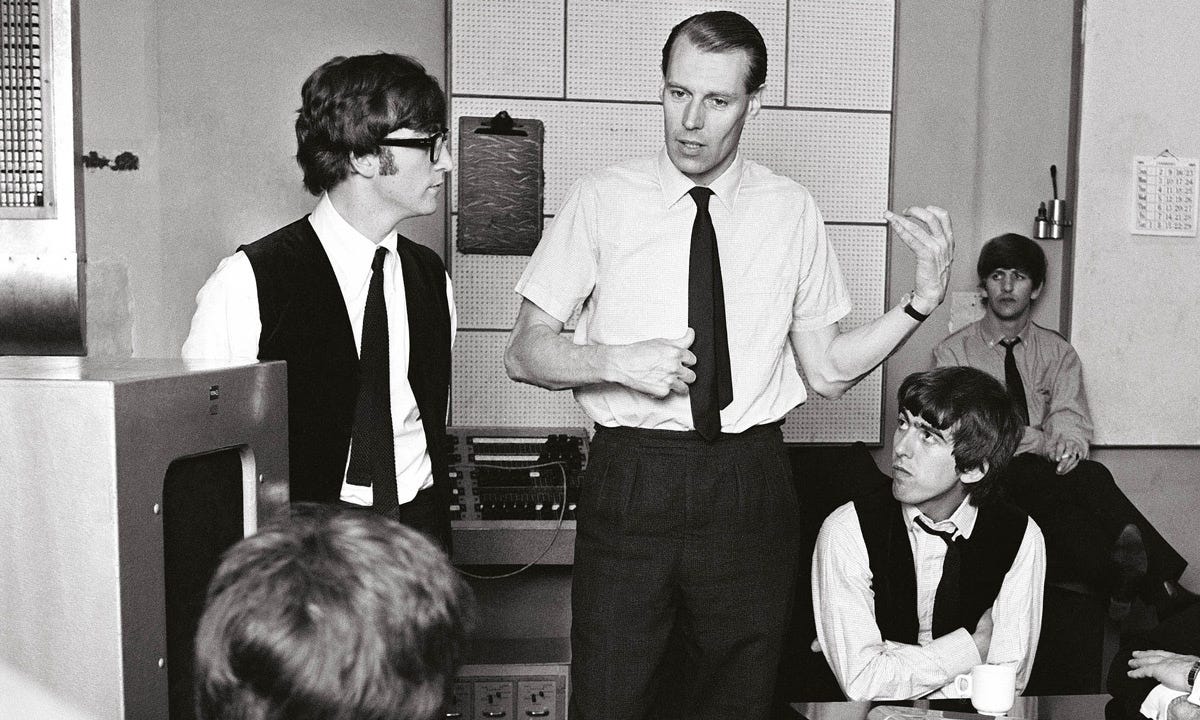This week is the eighth anniversary of the passing of George Martin, the brilliant producer that helped make the Beatles the greatest band of all time. This got me thinking about my own beginnings as a writer.
A generation ago, some of my first published pieces appeared in the pages of my university run magazine called the Linguistics Society Journal. The journal's adviser was also one of my English Lit mentors and he pulled some strings to get my work into the pages of the thin, wonky publication that mostly featured stories on comma use and symbolism.
I was a terrible writer, ergo the pulling of strings to get me in. I still have a lot to learn, but at least now I understand my failings. Back then, let's just say I was handicapped by my youth.
But one submission to that magazine changed the way I see writing, as well as the way I would forever write. After waiting a couple weeks, knowing one of my articles had been accepted, I excitedly rushed to the metal bin in the student union to get a copy only to discover that my piece – my precious, delicate words – had been changed.
My professor had re-written great chunks of the story, making it, well, obviously much, much better. But I didn't see that then. I only saw that my footprint had been altered, and I was mad.
Gathering up all the righteous indignation a wounded college student could muster, I stormed into his office and demanded an explanation. How could he do this? How could he make MY story something else, something not mine?
My mentor's name was Professor Zan Robinson and he had always supported and encouraged my writing. And even in the face of my ridiculous outrage, he offered a steady hand.
“Dan, you like the Beatles, no?” he began, calmly, a slight smile drifting across his face. “Think of me as your George Martin.”
Who are we as writers if not students of our environment, sponges willing to absorb the free flow of date and images and culture. But we are not alone. Let me repeat that.
Writers are not alone.
We may write in solitary conditions. We may purge our souls alone at the keyboard. We may, as Hemingway quipped, sit down at the typewriter and bleed. But to be better, to succeed, to create something worth a damn, you better find your George Martin and find him fast.
I was lucky. In my youth, at the very trailhead of my writing path, I found a mentor whose primary edict was that any art – poetry, writing, photography, painting – was a collaboration between the artist and the editor/spouse/publisher/culture/curator/beta reader/lover, etc. Maybe all of them.
Art, like life, works better if we work together. Find an editor who understands your brain. Find a publisher to help you realize your vision. Find readers you trust and love and who won't only tell you how great you. In fact, it's probably better to find allies who tell you when something stinks.
I've been with my editor, the great Susan Kennedy, for ten years. She is blunt, unwilling to put up with any of my drama-queen nonsense and sometimes leaves me breathless with notes and suggestions for changes. But she gets me. She answers my idiotic, desperate emails in the middle of the night when I have a question about quotation marks. I trust her. It's not just me, it never was. And it's not just you either.
Finally, and I can't emphasize this enough, when you do find an editor or a reader who gets you, who loves your words, your art, your voice and can make you better and stronger; when you do find your George Martin, just calm down and listen to him.





Oh my goodness, Dan! Thank you so much for including me in today's essay! Has it really been ten years? I guess I've lost track. Working with you is a pleasure, and I'm looking forward to many more years of collaboration. (Also, something similar happened to me at my first job. I guess we all go through it.)
As an English Lit major myself I found this all very interesting!